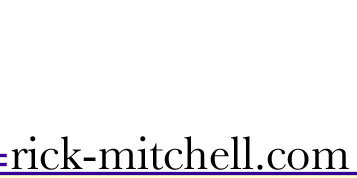France Moves Toward Selective Slaughter for BSE-Affected herds
By Rick Mitchell
Paris--The French ministry of agriculture indicated in mid-October that it planned to ease slaughter regulations to allow beef raisers to spare the lives of more cows in herds in which Bovine Spongiform Encephalopathy (BSE) has been detected.
The ministry also released statistics demonstrating a sharply higher incidence of BSE cases detected in France in the last two years, although the number of infected animals born in a given year appears to be down significantly since 1996.
“It’s too early to be absolutely sure, but there are rather positive signs that the measures we have taken are producing a positive effect,” said Marc Malenfer, a press attaché for the ministry.
A week after dropping its import ban on British beef, the ministry reported that its food safety watchdog branch, the AFSSA, had approved a ministerial draft order relaxing current slaughter rules, which require all herd animals born before January 1, 2002, to be destroyed when a case of BSE is discovered in the herd.
The systematic slaughter of BSE-affected herds costs beef raisers an average of 100 million euros per year in France, according to government statistics.
So-called partial, or selective, slaughter rules stipulate only the destruction of animals born fewer than 12 months before or 12 months after the infected case, as well as its descendants. Animals younger or older than that are spared. Following a European Union recommendation that appeared last year, Germany, the U.K., Holland, Italy and Spain already have similar policies.
The AFSSA said that current scientific knowledge had allowed it to determine that "the switch to a strategy of selective slaughter would not increase risk for the consumer.” Malenfer said the new rules would go into affect by month’s end.
Malenfer said some 714 confirmed native cases of BSE had been detected since 1991, including 274 in 2001 and 198 so far in 2002. However, most of the infected cows, 584, were born in the years 1993-95. Some 273 were born in 1995, the peak year, after which the number plunges to 60 in 1996 and 11 in 1997.
The ministry's anti-BSE measures have mainly concentrated on strictly controlling animal feed. Feed containing animal protein -- identified as a primary transmission route for the BSE pathogenic prion -- has been banned for cattle in France since 1990. However, Malenfer said, BSE cases continued to mount here because contaminated feed came into France from other European countries until 1994, when the European Union banned it. The EU banned animal-protein-enriched feed for all livestock, including poultry and pork, in 1996. Other, unidentified transmission routes may exist as well, Malenfer said.
The ministry made its first move to ease slaughter rules in April, sparing animals born after January 1, 2002, based on an AFSSA study showing that significantly improved animal-feed safety had reduced the risk of infection.
To reach its latest decision, the AFSSA studied the results of BSE tests performed at abattoirs on 25,000 cows and producing four positive results. The positive cases would all have been detected and destroyed under the selective-slaughter rules, it said.
However, because current tests can only be done on the brain tissue of dead animals, and because the risk of false-negative cases exists, some infected meat could still reach consumers. The agency estimates that 0.06 and 0.212 infected animals would falsely test negative per year and make it through the processing industry. The last line of defense against these is the government’s program aimed at ensuring that the brain, nerve and other tissues most likely to transmit BSE are correctly removed from carcasses, the AFSSA said.
Under the new regulations, operations that have raised infected cattle from birth to the second year will be labeled “at risk,” and animals from their herds subject to more frequent testing. France currently tests all beef slaughtered over the age of 24 months.

